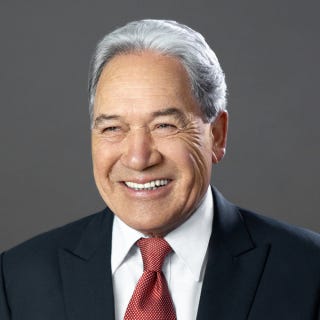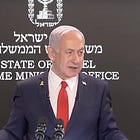New Zealand to Decide on Palestinian State Recognition in September
New Zealand will decide in September whether to formally recognize a Palestinian state, Foreign Minister Winston Peters announced Sunday, as the government weighs the humanitarian crisis in Gaza against complex regional security concerns.
Peters told Cabinet that recognition of Palestine is a matter of "when, not if," but said the government needs to carefully evaluate whether sufficient conditions exist for a viable Palestinian state before making the historic decision.
"New Zealand has been clear for some time that our recognition of a Palestinian state is a matter of when, not if," Peters said in a statement released by the government. "We will need to weigh up whether sufficient progress is being made against these benchmarks in order to warrant New Zealand recognising a Palestinian state at this juncture."
The announcement comes as the Gaza Strip faces what UN officials have described as a humanitarian catastrophe, with ongoing warfare between Israel and Hamas entering its 11th month. Peters acknowledged the crisis has pushed Palestinian statehood to the forefront of global discussions.
Cabinet Consideration Underway
Peters presented an oral briefing to Cabinet on Sunday ahead of formal consideration scheduled for September. The government plans to spend the next month consulting various stakeholders and examining the complex factors involved in recognition.
"Cabinet will take a formal decision in September over whether New Zealand should recognise a state of Palestine at this juncture – and if so, when and how," Peters said.
The foreign minister emphasized that New Zealand maintains an independent foreign policy on the issue, despite divisions among the country's international partners. Some close allies have recognized Palestinian statehood while others have not.
"Ultimately, New Zealand has an independent foreign policy, and on this issue, we intend to weigh up the issue carefully and then act according to New Zealand's principles, values and national interest," Peters said.
Humanitarian Crisis Influences Decision
The timing of New Zealand's deliberations coincides with escalating violence in Gaza and growing international pressure for a political solution to the Israeli-Palestinian conflict. Peters cited the deteriorating humanitarian situation as a key factor in the government's considerations.
"The humanitarian catastrophe in Gaza is rightly at the forefront of the global agenda," Peters said. "New Zealand, as a long-standing supporter of the two-state solution and Palestinian self-determination, is an active participant in discussions about how to broker a ceasefire and a political settlement to enable Israelis and Palestinians to live peacefully side-by-side."
The foreign minister noted that New Zealand will continue advocating for its position despite being geographically distant from the Middle East conflict.
"While we are a long way away from the Middle East, we will continue to ensure our voice is heard," he said.
Prerequisites Under Review
New Zealand has established specific criteria for Palestinian state recognition, including security, political, diplomatic and economic prerequisites that officials say must be met for a viable and legitimate state.
Peters indicated the government is evaluating whether current conditions on the ground meet these standards, particularly given the ongoing conflict and political instability in Palestinian territories.
"New Zealand has long asked whether the pre-requisites for a viable and legitimate Palestinian state – in security, political, diplomatic and economic terms – exist," Peters said.
The assessment includes consideration of statements from Arab states calling for Hamas to disarm and play no future role in Palestinian governance, according to the foreign minister.
Truth matters. Quality journalism costs.
Your subscription to The Evening Post (Australia) directly funds the investigative reporting our democracy needs. For less than a coffee per week, you enable our journalists to uncover stories that powerful interests would rather keep hidden. There is no corporate influence involved. No compromises. Just honest journalism when we need it most.
Not ready to be paid subscribe, but appreciate the newsletter ? Grab us a beer or snag the exclusive ad spot at the top of next week's newsletter.
Political Divisions Acknowledged
Peters acknowledged significant disagreements within the New Zealand government, parliament and broader society regarding Palestinian state recognition, describing the issue as complex and not "straightforward" or "clear-cut."
"There are a broad range of strongly held views within our Government, Parliament and indeed New Zealand society over the question of recognition of a Palestinian state," Peters said.
The foreign minister emphasized the need for a measured approach to the sensitive diplomatic decision.
"It is only right that this complicated issue be approached calmly, cautiously and judiciously," he said. "Over the next month, we look forward to canvassing this broad range of views before taking a proposal to Cabinet."
International Context
The New Zealand announcement comes as various countries reassess their positions on Palestinian statehood amid the ongoing Gaza conflict. Several European nations have moved toward recognition in recent months, while other allies maintain that statehood should emerge through direct Israeli-Palestinian negotiations.
Peters noted that New Zealand's close partners remain divided on the recognition question, requiring careful consideration of diplomatic relationships and regional stability concerns.
"Some of New Zealand's close partners have opted to recognise a Palestinian state, and some have not," he said.
UN Presentation Planned
Peters will travel to New York in late September for United Nations Leaders' Week, where he plans to present New Zealand's approach to Palestinian state recognition regardless of the Cabinet's final decision.
The timing allows the government to announce its position on a global stage and potentially coordinate with other nations considering similar moves.
Historical Context
New Zealand has long supported the principle of Palestinian self-determination and a two-state solution to the Israeli-Palestinian conflict. The country has provided humanitarian aid to Palestinian territories and supported UN resolutions calling for Palestinian rights.
However, New Zealand has stopped short of formal state recognition, citing the need for stable institutions and clear territorial boundaries before taking such a step.
Consultation Process
The government plans to use the next month to gather input from various sources, including diplomatic partners, domestic political leaders and civil society organizations with stakes in the outcome.
Peters indicated that the consultation process will help inform the final Cabinet decision and ensure all perspectives are considered before making what could be a significant shift in New Zealand's Middle East policy.
Regional Implications
The Palestinian recognition decision could affect New Zealand's relationships with both Israel and Arab nations, as well as its standing in international forums addressing Middle East issues.
Peters suggested that New Zealand's eventual decision will be guided by principles and values rather than purely strategic considerations, though national interests will factor into the final determination.
Timeline and Process
The September Cabinet meeting will mark the culmination of what Peters described as "careful, methodical and deliberate attention" to the Palestinian recognition question.
Following the Cabinet decision, New Zealand will need to determine implementation details if recognition moves forward, including the level of diplomatic relations and specific conditions attached to the recognition.
The announcement represents one of the most significant foreign policy decisions facing the New Zealand government, with potential implications for the country's role in Middle East diplomacy and its relationships with key international partners.
As the consultation period begins, Peters emphasized that the government will base its final decision on thorough analysis of current conditions rather than political pressure or diplomatic convenience.
Got a News Tip?
Contact our editor via Proton Mail encrypted, X Direct Message, LinkedIn, or email. You can securely message him on Signal by using his username, Miko Santos.
As well as knowing you’re keeping Mencari (Australia) alive, you’ll also get:
Get breaking news AS IT HAPPENS - Gain instant access to our real-time coverage and analysis when major stories break, keeping you ahead of the curve
Unlock our COMPLETE content library - Enjoy unlimited access to every newsletter, podcast episode, and exclusive archive—all seamlessly available in your favorite podcast apps.
Join the conversation that matters - Be part of our vibrant community with full commenting privileges on all content, directly supporting The Evening Post (Australia)
Not ready to be paid subscribe, but appreciate the newsletter ? Grab us a beer or snag the exclusive ad spot at the top of next week's newsletter.









